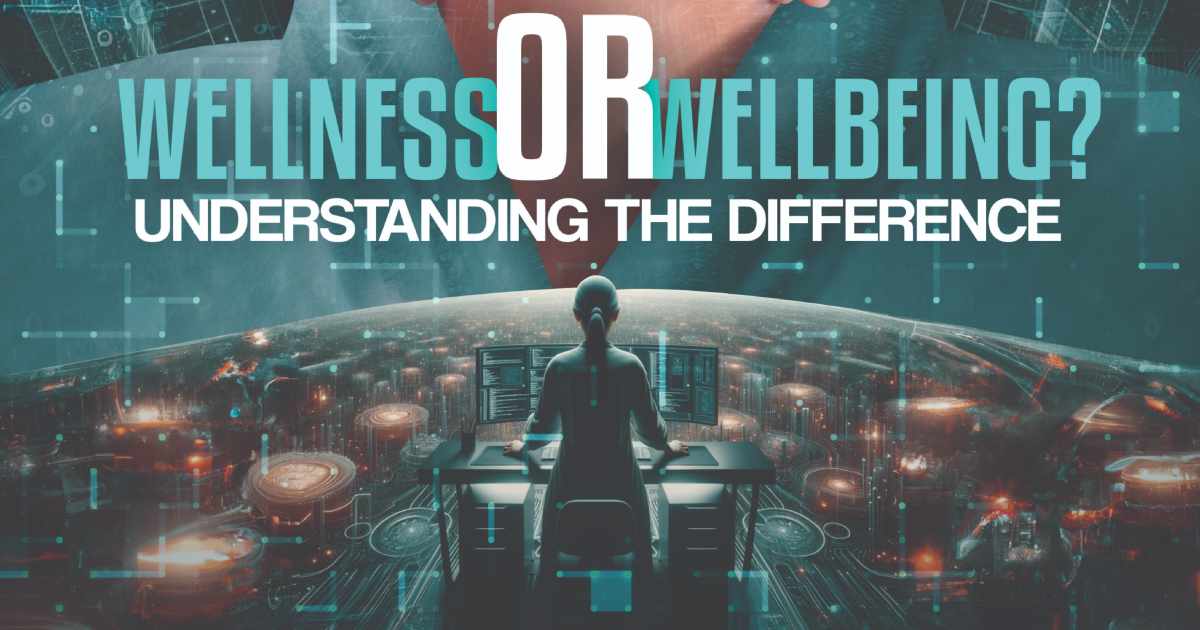Wellness and wellbeing are often switched, although they represent distinct dimensions of health. Imran Ali Zaman explores the difference with precision, underscoring the importance of this understanding for both individuals and marketers.
It’s a widely accepted belief that the terms ‘wellness’ and ‘wellbeing’ hold the same meanings. And are used interchangeably in everyday discussions. However, it is crucial to recognise the subtle distinction between the two for a clearer insight. Wellness generally refers to an individual’s physical health. Wellness encompasses physical health, dietary habits, quality sleep, and various activities contributing to overall health. Meanwhile, wellbeing encompasses a wider and more holistic idea, incorporating subjective feelings of satisfaction, happiness, and fulfilment across various aspects of life. Wellbeing can also involve social and spiritual health.
So, the question arises as to why it remains important to be clear on the difference between both terms. Wellness and wellbeing, despite being the most related concepts, represent different aspects of health and life satisfaction. Understanding the distinction between these two terms is essential for individuals and professionals in the health and wellness fields. It enables a more comprehensive approach to promoting health and enhancing quality of life. Wellness is often used when referring to one’s life choices by keeping only health conditions in mind. For example, this could be choosing exercises, specific diet patterns, making lifestyle changes, or a plan to improve health standards. The National Institute of Wellness considers wellness to be “an active process through which people become aware of, and make choices toward a more successful existence”. This definition allows a better understanding of wellness.
Conversely, the term wellbeing goes beyond the traditional thinking of focussing on physical health only. The World Health Organization (WHO) states: “Health is a state of complete physical, mental, and social wellbeing. And not merely the absence of disease or infirmity. Mental health is a state of wellbeing in which an individual realises his or her abilities, can cope with the normal stresses of life. Can work productively and is able to make a contribution to his or her community”.
Researchers have agreed that wellbeing is crucial as it is closely related to life satisfaction proving that the greater you’re satisfied in your life, the greater you’ll be productive and enjoy your life. Achieving both wellness and wellbeing in your life is important as they help individuals reach their life goals, making them live a satisfactory life and enhancing their ability to manage stress.
In recent years, individuals around the globe have been becoming more conscious about their health and wellbeing. Consequently, there is a surge in marketing strategies of leading brands across various industries that focus more on wellness and wellbeing. As consumers become increasingly health-conscious and seek holistic approaches to their lifestyles. Brands are crafting campaigns that resonate with their audience’s desire for improved physical, mental, and emotional health.
Nowadays, homo sapiens are looking more for products targeting beyond their physical health needs. Health-conscious consumers are informed and proactive about their choices. They prioritise products that resonate with their requirements, such as quality and health benefits. Marketing strategists who understand these characteristics tailor their messaging and offerings to align with this audience.
Brands are often targeting their potential consumers by telling success stories of their existing customers who have been cherishing their life choices. Effective storytelling allows brands to convey their commitment to wellness and wellbeing. Sharing personal testimonials is also efficacious in developing a bond of emotional attachment with the product resulting in a positive impact on their lives. For instance, skincare brands are increasingly targeting their buyers by highlighting morning and night time skincare routines’. It makes clients feel full of vim and vigour. Not only this, a lot of skincare products are hitting the bull’s eye with claims of breathing in confidence in self-conscious consumers.
With increasing awareness regarding mental health and its importance, brands are promoting mental wellbeing in their products. For instance, cooking oils have been aiming at mindful eating practices, stress-relieving lifestyles, and good mental health with good quality food. Such strategies not only focus on the quality of the product but also the changes in lifestyle that lead to happy, healthy living. Similarly, most of the bedding advertisements convey comfort along with mental peace that results after a good night’s sleep. Brands also often partner with influencers who embody wellness values to effectively reach health-conscious audiences. Influencers with dedicated reach can amplify a brand’s message and enhance credibility.
Food brands often showcase low-calorie, high-fibre, or organic options to attract health-focused buyers. This also includes organic foods, gluten-free options, and fortified products that provide added vitamins and minerals. Keeping busy lifestyles in mind, brands are also offering ready-to-eat food options for individuals seeking healthy choices without compromising on convenience.
As the focus on wellbeing and wellness is fast-growing in Pakistan. Brands have geared up according to the needs and preferences of the demographics. Brands have now become more conscious in their marketing strategies when aiming at their targets trying to be aligned with the consumer needs and values. Strategists are not only providing meaningful solutions to a wider audience but also contributing positively to the overall health landscape.










